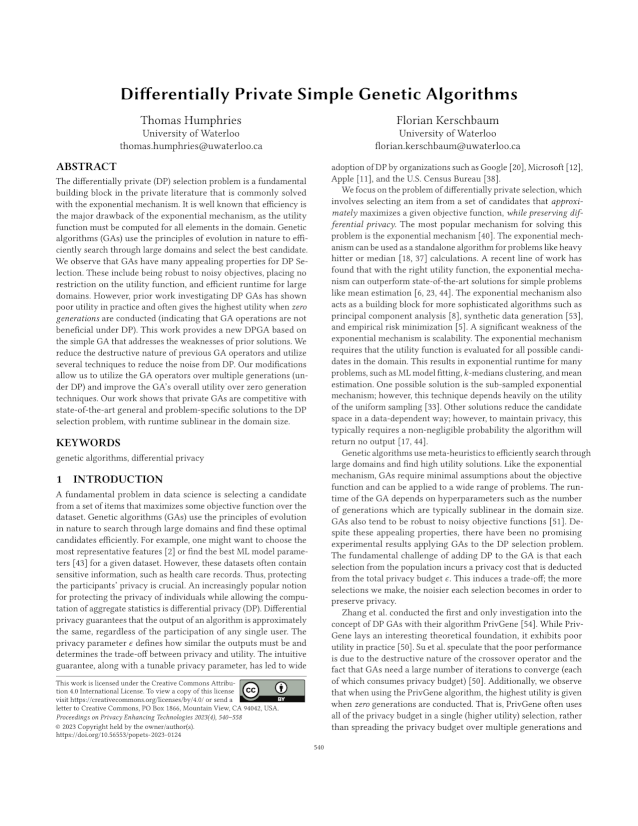Differentially Private Simple Genetic Algorithms
Authors: Thomas Humphries (University of Waterloo), Florian Kerschbaum (University of Waterloo)
Volume: 2023
Issue: 4
Pages: 540–558
DOI: https://doi.org/10.56553/popets-2023-0124
Abstract: The differentially private (DP) selection problem is a fundamental building block in the private literature that is commonly solved with the exponential mechanism. It is well known that efficiency is the major drawback of the exponential mechanism, as the utility function must be computed for all elements in the domain. Genetic algorithms (GAs) use the principles of evolution in nature to efficiently search through large domains and select the best candidate. We observe that GAs have many appealing properties for DP Selection. These include being robust to noisy objectives, placing no restriction on the utility function, and efficient runtime for large domains. However, prior work investigating DP GAs has shown poor utility in practice and often gives the highest utility when zero generations are conducted (indicating that GA operations are not beneficial under DP). This work provides a new DPGA based on the simple GA that addresses the weaknesses of prior solutions. We reduce the destructive nature of previous GA operators and utilize several techniques to reduce the noise from DP. Our modifications allow us to utilize the GA operators over multiple generations (under DP) and improve the GA's overall utility over zero generation techniques. Our work shows that private GAs are competitive with state-of-the-art general and problem-specific solutions to the DP selection problem, with runtime sublinear in the domain size.
Keywords: genetic algorithms, differential privacy
Copyright in PoPETs articles are held by their authors. This article is published under a Creative Commons Attribution 4.0 license.


